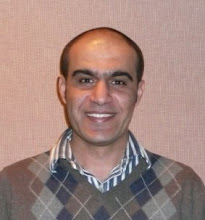The parliament of Kurdistan faces a host of public health challenges that represent health policy opportunities. Addressing those public health issues through appropriate bills, that establish for policies at the health infrastructure levels, would prove beneficial not only for the ordinary people but also a great political move for gaining support and votes in future elections.
The people of Kurdistan face a range of public health risks that transcend political and partisan differences and conflicts. Addressing those risks could prove a chance to mitigate the political tensions arose during the election campaign and provide an avenue for starting a calm and responsible dialogue among the members of the parliament of different political lists and parties.
This is an invitation for professionals, policy makers and other stakeholders to start brainstorming about the public health priorities that can be addressed through bills in the Parliament,
1. Enrichment of Flour with Folic Acid: In my 10 years tenure in Medicine, I have seen many cases of Anencephaly, Spina Bifida and other neural tube defects in labor rooms and maternity hospitals. In fact my own sister and aunt had had abortions due to significant neural tube defects in their embryos. Despite the fact that we don't have solid data demonstrating the incidence and prevalence of neural tube defect, but I think enriching the flour we eat with folic acid would be much more cost effective even that starting a study to document the problem.
2. A Mental Health Act: The mentally ill people of Kurdistan are among the most disadvantaged people of the country. A host of political, economic and social factors had contributed to only increasing the incidence and prevalence of mental illness but also negatively impacted the stigmatization and further marginalization of this vulnerable population. It is necessary to address this issue by the parliament through passing an act that help to protect, respect and fulfil the rights of people with mental illness and retardation.
3. Eliminating Leed in Gas: Iraq is one of the developing countries that still have leed in the automobile gas. Leed has a host of serious health consequences that affect the intellectual capacities and cognitive functions of kids and adults. Its important to start thinking about ways of eliminating Leed from gas.
4. Use of technology in Health care: Modern technology is one of the prerequisite for an advanced and successful business in today's world. The health care system is way behind other industries in adopting new technologies like computers and the Internet for the provision of health care services. The latter tools would decrease the incidence of errors, enhance the quality of the provided health care and increase the speed with which health care services are provided in addition to providing a platform for research and data analysis. The archaic paper based system of health care provision in Kurdistan is so old to sustain and costing the system much needed resources while doesn't prevent human errors and undermine the quality of health care services.
There are other issues that are non-partisan and transcend political and partisan conflicts that we can start working on before addressing more sensitive and politically polarizing issues like the separation of public and private sector's of the health care system and paralyzing involvement of politics in health care.
Saturday, August 8, 2009
Subscribe to:
Post Comments (Atom)












No comments:
Post a Comment